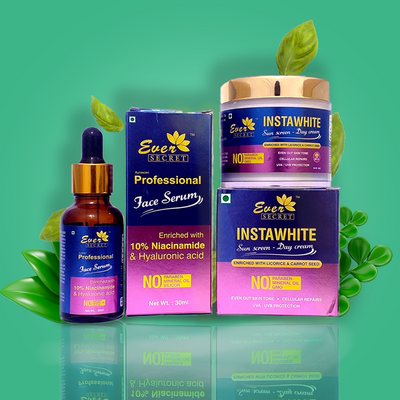Antioxidants have been a buzzword in the skincare industry for years, and for good reason. They help to protect the skin from free radical damage, which can lead to premature aging, hyperpigmentation, and other skin concerns, Vitamin C is a well known antioxidant in skincare. In this article, we’ll go through the role of antioxidants in skincare and why Vitamin C is a powerful antioxidant. So without wasting time let’s get started.
Antioxidants: What Are They And Why Are They Essential In Skincare?
Antioxidants are chemicals that aid in the prevention of free radical damage to the skin. Free radicals are unstable molecules that can damage the skin’s cells and DNA, leading to premature aging, hyperpigmentation, and other skin concerns. Antioxidants protect the skin by neutralizing free radicals.
The Role Of Vitamin C In Skincare
Vitamin C is a well-known antioxidant in skincare. It has numerous benefits for the skin, including:
- Brightening and Evening Out Skin Tone: Vitamin C helps to brighten and even out skin tone by inhibiting the production of melanin, the pigment that gives skin its color.
- Stimulating Collagen Production: Vitamin C helps to stimulate collagen production, which can improve the appearance of fine lines and wrinkles and make the skin look more youthful.
- Protecting Against Environmental Damage: Vitamin C helps to protect the skin against environmental damage, such as UV rays and pollution, by neutralizing free radicals.
- Hydrating the Skin: Vitamin C has hydrating properties, which can help to plump and moisturize the skin.
Why Vitamin C? Is A Powerhouse Ingredient In Skincare?
There are several reasons why Vitamin C is a powerhouse ingredient in skincare:
- Effective: Vitamin C has been extensively studied and has been shown to be effective in improving the appearance of the skin.
- Versatile: Vitamin C can be used in a variety of skincare products, including serums, moisturizers, and masks.
- Safe: Vitamin C is generally considered safe for all skin types, although those with sensitive skin may want to start with a lower concentration.
- Complements Other Skincare Ingredients: Vitamin C can be used in conjunction with other skincare ingredients, such as retinol and hyaluronic acid, to enhance their effectiveness.
Quick Guide : To Implement Vitamin C In Your Skincare Routine
Incorporating Vitamin C into your skincare routine is easy. Here are some tips:
- Choose the Right Vitamin C Product: Look for a Vitamin C product that is suitable for your skin type and concerns. Serums are a popular choice as they are lightweight and easy to absorb.
- Start Slowly: If you’re new to using Vitamin C, start slowly and gradually increase frequency. Begin by using the product once or twice a week and gradually increase to daily use.
- Use in the Morning: Vitamin C is best used in the morning as it helps to protect the skin from environmental damage throughout the day.
- Follow with Sunscreen: Vitamin C can help to protect the skin from UV rays, but it’s still important to follow with sunscreen to ensure maximum protection.
- Be Consistent: When it comes to skincare, consistency is essential. Use your Vitamin C product regularly to see the best results.
Conclusion
Antioxidants play an important role in skincare, helping to protect the skin from free radical damage and promote healthy, radiant skin. Vitamin C is a powerhouseingredient in skincare, offering numerous benefits for the skin. By choosing the right product, starting slowly, and being consistent, you can easily incorporate Vitamin C into your skincare routine and enjoy its many benefits.

